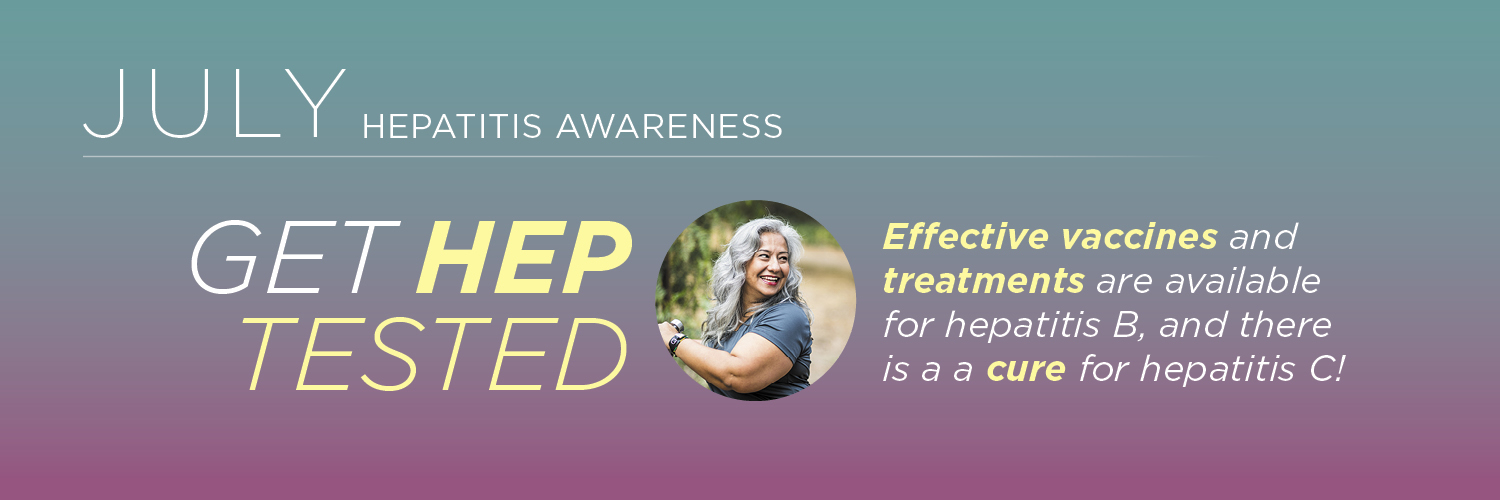
Every July, World Hepatitis Day provides an opportunity for infectious disease specialists like me to raise awareness of the problem of viral hepatitis. Viral hepatitis is actually a group of infectious diseases that affect 325 million people worldwide, causing both acute (short-term) and chronic (long-term) liver disease. Viral hepatitis causes more than one million deaths each year and while deaths from tuberculosis and HIV have been declining, deaths from hepatitis are increasing.
Hepatitis A
People who get hepatitis A may feel sick for a few weeks to several months but usually recover completely and do not have lasting liver damage. The hepatitis A virus is found in the stool and blood of people who are infected and can be spread when someone unknowingly ingests the virus — even in microscopic amounts — through close personal contact with an infected person or through eating contaminated food or drink. Symptoms of hepatitis A can last up to 2 months and include fatigue, nausea, stomach pain, and jaundice. Hepatitis A is very contagious, and people can even spread the virus before they get symptoms.
Hepatitis B
Hepatitis B is spread when blood, semen, or other body fluids from a person infected with the virus enters the body of someone who is not infected. This can happen through sexual contact or sharing drug-injection equipment. Not all people newly infected with HBV have symptoms, but for those that do, symptoms can include fatigue, poor appetite, stomach pain, nausea, and jaundice. For many people, hepatitis B is a short-term illness. For others, it can become a long-term, chronic infection that can lead to serious, even life-threatening health issues like cirrhosis or liver cancer. Though, treatments are available that can delay or reduce the risk of developing liver cancer.
Vaccines
Both hepatitis A and B are preventable with vaccines. The hepatitis A vaccine is recommended for all children at one year of age and for adults who may be at risk, including travelers to certain international countries. The CDC recommends both vaccines for all people who are:
- Sexually active people who are not in a long-term, mutually monogamous relationship (for example, people with more than one sex partner in the past 6 months)
- Travelers to certain countries, particularly in Asia, the Pacific Islands and Africa.
- Men who have sex with men
- People who use or inject drugs
- People who anticipate close personal contact with an international adoptee
- People experiencing homelessness
Hepatitis C
Hepatitis C is spread through contact with blood from an infected person. Today, most people become infected with the hepatitis C virus by sharing needles or other equipment used to prepare and inject drugs. For some people, hepatitis C is a short-term illness, but for more than half of people who become infected with the hepatitis C virus, it becomes a long-term, chronic infection. Chronic hepatitis C can result in serious, even life-threatening health problems like cirrhosis and liver cancer. People with chronic hepatitis C can often have no symptoms and don’t feel sick. When symptoms appear, they often are a sign of advanced liver disease.
There is no vaccine for hepatitis C. The best way to prevent infection is by avoiding behaviors that can spread the disease, especially injecting drugs. Getting tested for hepatitis C is important, because treatments can cure most people with hepatitis C in 8 to 12 weeks.
Now That You Know
Millions of Americans living with viral hepatitis, yet many don’t know it. People can live without symptoms, but over time, chronic hepatitis B and C can cause serious health problems. Talk to your doctor about getting tested. It could save your life.
Kate Wojnicki, ARNP, Unity Care NW – I’m a Family Nurse Practitioner and HIV Specialist at Unity Care NW. I hold a Bachelor of Science from the University of Washington and a Master of Science in Nursing/ Nurse Practitioner degree from Seattle Pacific University. After spending 6 years in the Neonatal Intensive Care Unit at UW and volunteering in Uganda, I completed a Community Health Residency in Tacoma with a focus on caring for persons living with HIV. I joined Unity Care NW in 2014 as an opportunity to serve the community where I spent much of my childhood. I earned my HIV credential through the American Academy of HIV Medicine in 2016.